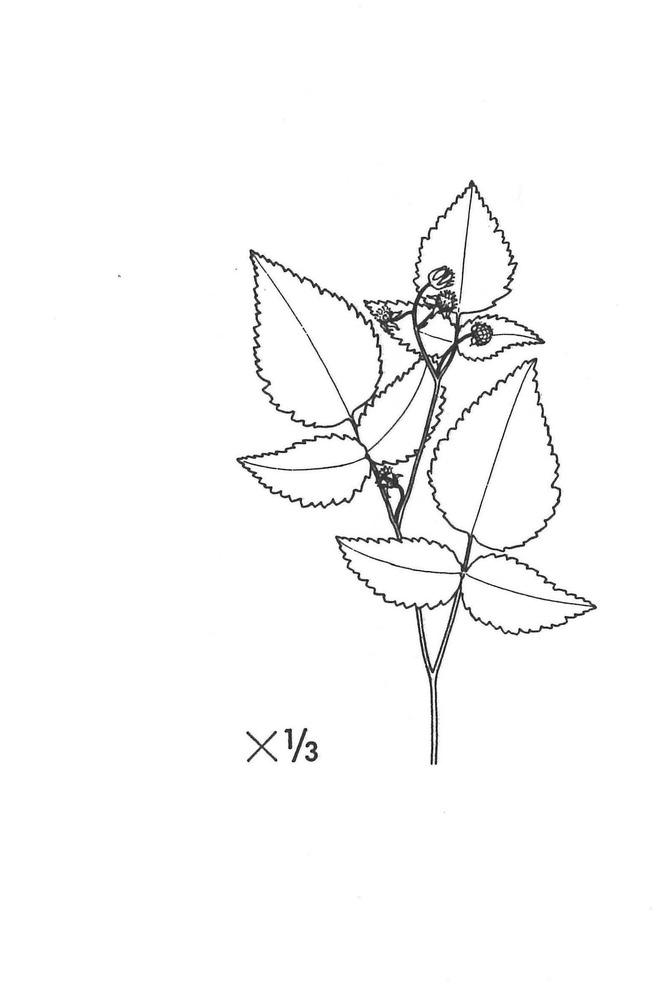| Rubus idaeus subsp. melanolasius (Dieck) Focke | |||
| |||
| Family | Rosaceae — APG family: Rosaceae | ||
| Synonyms | Rubus melanolasius Dieck, Rubus skbarcticus Rydb., Rubus idaeus var. strigosus (Michx.) Maxim., Rubus idaeus subsp. sachalinensis (Lev.) Focke, Rubus idaeus var. canadensis Richards., Rubus sachalinensis Lev., Rubus strigosus Michx. | ||
| Common name | raspberry | ||
| Description | Stems upright, biennial, from subterranean, branching rhizome, prickly or bristly; leaves 3-5-foliate; leaflets oblong-ovate, acute, serrate, whitish below; inflorescence in axils, glandular, with 1-4 flowers; calyx lobes reflexed, caudate; petals white; fruit red, tomentulose, soon falling off, palatable, makes a good jam. | ||
| Ecology | Thickets, borders of woods. R. idaeus described from Europe, subsp. melano- lasius from cultivated plants from northwest North America. | ||
| Taxonomy notes | Hybrids with R. spectabilis occur. Broken line on circumpolar map indicates range of subsp. idaéus. |
This is a digital representation of Eric Hultén’s ‘Flora of Alaska and Neighboring Territories: A Manual of the Vascular Plants’, which was published by Stanford University Press in 1968. The book was digitized by C. Webb (at UAMN) as part of the Flora of Alaska project, with funding by the US NSF (Grant 1759964 to Ickert-Bond & Webb), and with permission of Stanford University Press. Data and images © 1968 Board of Trustees of the Leland Stanford Jr. Univ. Usage licence: Creative Commons BY-NC-SA 4.0. NB: You may find OCR errors; please refer to the hard-copy if in doubt.
